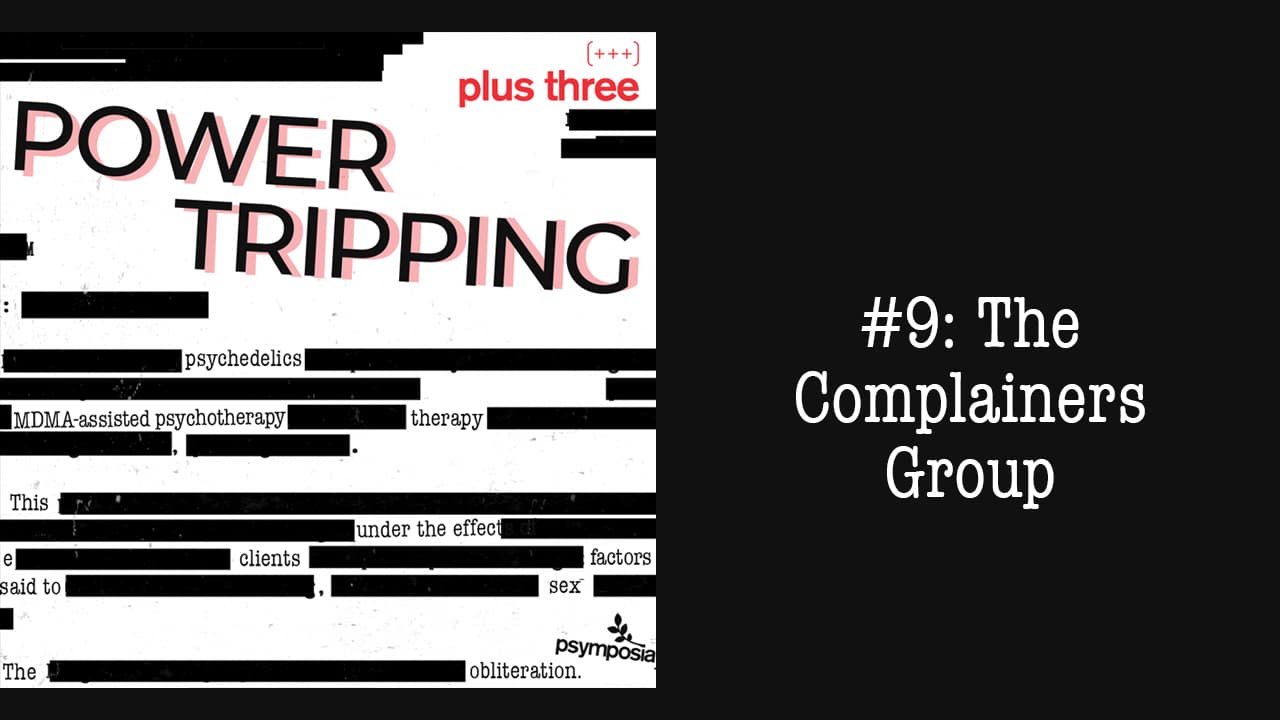Power Tripping #9: The Complainers Group
Both underground and above-ground therapists and practitioners present their psychedelic services in service to “healing.” Why, then, is it so hard to get them to acknowledge the harms taking place in their communities? Why do institutions seem more concerned with preserving their reputations than addressing the numerous harmful dynamics that have persisted for years? If the psychedelic movement intends to heal trauma, it must begin at home.
Power Tripping #9: The Complainers Group
Both underground and above-ground therapists and practitioners present their psychedelic services in service to “healing.” Why, then, is it so hard to get them to acknowledge the harms taking place in their communities? Why do institutions seem more concerned with preserving their reputations than addressing the numerous harmful dynamics that have persisted for years? If the psychedelic movement intends to heal trauma, it must begin at home.

Both underground and above-ground therapists and practitioners present their psychedelic services in service to “healing.” Why, then, is it so hard to get them to acknowledge the harms taking place in their communities? Why do institutions seem more concerned with preserving their reputations than addressing the numerous harmful dynamics that have persisted for years? If the psychedelic movement intends to heal trauma, it must begin at home.